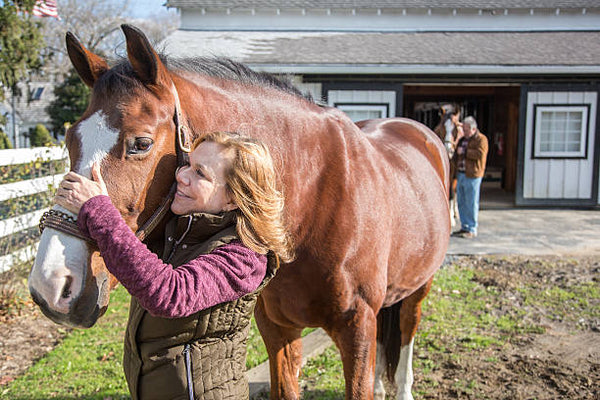Dogs bark. It’s one of the ways they communicate. Many humans consider it to be annoying, loud and unnecessary but it is important to remember barking, along with whining, howling and growling, is a dog’s natural means of communication.
When your dog barks incessantly, for whatever reason it can be distressing, leaving us at best to be frustrated, and at worst; seriously concerned for our canine friend's happiness. However, typically on-going barking problems simply represent miscommunication between dog and owner.
Some dogs regularly bark because they have not had sufficient training that, to humans, this is an unacceptable behaviour. However even if the training is in place, your dog may at times, ignore your 'no excessive barking' rule! This is likely to be a result of boredom, fear or in order to receive attention. In order to retrain a 'problem barker' it is necessary to determine what factors may be triggering the behaviour.
Causes of Problem Barking
-
Physical Needs Not Being Met
If a dog barks as a result of physical needs not being met, he may be hot, cold, hungry or thirsty. This is the dog’s way of requesting that you accommodate their needs. A dog may also become a problem barker due to insufficient exercise –releasing their pent-up energy through barking. -
Emotional Needs Not Being Met
A dog's emotional needs may not be met, he could be experiencing emotions such as excitement, anxiousness or loneliness. Barking can be the dog’s way of requesting attention, or may be a compulsive behaviour resulting from a frustrated need for social and/or mental stimulation. Some dogs can also bark as a result of separation anxiety. For these dogs, the fear of abandonment is greater than whatever repercussions might come from the barking. -
Environmental Factors
Improper confinement can lead to a dog that barks excessively and barking can also be triggered by stressful environmental cues such as loud noises. In addition it is very important to consider what your dog experiences in terms of strangers, for example, dogs will learn to bark if you leave them in an environment that has sight of regular human or vehicle traffic. Imagine the scenario; a passersby walks by, and the dog woofs a bit, the person keeps walking, and eventually they disappear. The dog thinks he has scared the “intruder” away. This happens over and over, day after day, whilst you are at work, oblivious, leading the dog to self-reinforce his barking behaviour.
Top Five Solutions from Scientific Nutritional Products
1.) Make sure your dog's physical needs are met with sufficient exercise, stimulation alongside ample water and a balanced diet.
2.) Ensure the canine's emotional needs are met by offering adequate company to them via yourself and/or another dog. Remember dogs are pack animals who do not enjoy being separated for long periods. If you have to leave your canine for a prolonged period increase their activity level by offering entertainment with toys, bones, chews.
3.) Give some serious consideration to the environment you provide, if you think there is something which may be stimulating your dog's barking i.e. the postman or neighbours try and remove it where possible by utilising measures, for example like shutting curtains.
4.) Rather than punishing barking behaviour it is important to offer positive reinforcement to quiet behaviour. However DO NOT reinforce the barking behaviour by giving in to the dog’s demand for attention. Reward the dog when they are quiet and well behaved.
5.) If you are still stuck, enrol in a training class. A well trained dog is seldom a problem barker and training will increase your dog’s confidence and control.
As a dog owner it is ideal to consider that if your dog barks, he believes that there is a valid reason to do. Recognising your dog's experience of the situation and increasing their security as an individual, can improve the symptoms by addressing the underlying cause of their behaviour. All dog owners wish for their canines to be happy and healthy. In order to have a content dog our canines must receive sufficient exercise, bonding time with their owner and a nutritious balanced diet. Also include a Glucosamine for Dogs supplement if your dog is feeling stiff and less mobile.
A range of canine supplements including Glucosamine for Dogs Canine Joint Right is available from Scientific Nutritional Products. For more information or to receive one-to-one supplement advice specific to your dog contact our nutritional specialist Peter Fishpool on FREEPHONE 0800 032 7774



